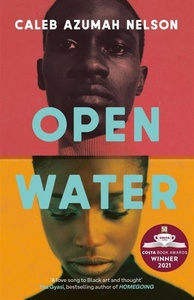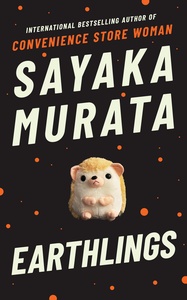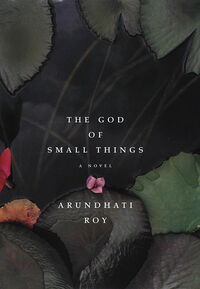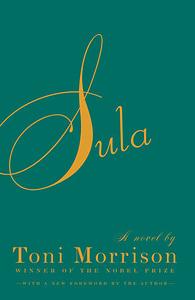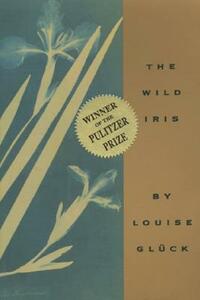You need to sign in or sign up before continuing.
Take a photo of a barcode or cover
notesofacrocodile's Reviews (257)
4☆ — it has been a long time since i've read a story of two people in love that was rendered so evocatively and poetically. for the first few pages i was having a somewhat difficult time adjusting to the second-person perspective, one that i so rarely read. but i found it easy to get used to it, and could see why the second-person perspective was the most effective one to use, especially for our narrator. there's a quote mentioned in this novel, attributed to james baldwin: "i want to be an honest man and a good writer." the narrator further explores the idea of meeting people 'honestly', and i personally think the usage of the second person narrative allows for such an honest meeting between us (as the reader) and the narrator, in the metaphorical open water.
i really admire the way and the ideas that the author ruminates over—blackness, black masculinity, and vulnerability with the people you love being just some of them—and i raved about the book to my close friend even before i finished reading it. i think one of the few things that i think could have been improved upon was the over usage of the poetic style prose, which in some parts bordered on sort of unnecessary and tended to take on the nature of purple prose.
i really admire the way and the ideas that the author ruminates over—blackness, black masculinity, and vulnerability with the people you love being just some of them—and i raved about the book to my close friend even before i finished reading it. i think one of the few things that i think could have been improved upon was the over usage of the poetic style prose, which in some parts bordered on sort of unnecessary and tended to take on the nature of purple prose.
still confused about what i really feel about this one. i was captivated by the writing and happenings, but as to how much i enjoyed or found satisfaction in it is something i need to ruminate on. looks into themes of nonconformity, abuse, the pressures of adulthood, and the like.
a deeply sad and beautiful novel that incorporates a metaphorically rich writing to infuse colour into a world where bad things happen to good people, where people die, and where trauma and tragedy is like a creeping creature that extends its limbs into every nook and crevice as an omnipresent entity. this novel is one of my favourites for a reason; the writing changes with the book like a chameleon changing its colours. it is rich and gorgeously rendered when describing the nature of ayemenem. it is terrifying with big claws and sharp teeth when stonily reporting the unpleasant unfairness of everyday life and the corruption of the system. it becomes an elegant and lithe being with gentle hands to cup the children's faces when it describes their inner thoughts and monologues.
the novel discusses many things, amongst them were the malicious nature of casteism that has invaded every space of the indian life, and the presence of communism and its complexities to the specific context of kerala.
a novel that is rich with its prose and somehow manages to use humour to its advantage, with a sad and lonely beating heart. would recommend it with my whole heart.
the novel discusses many things, amongst them were the malicious nature of casteism that has invaded every space of the indian life, and the presence of communism and its complexities to the specific context of kerala.
a novel that is rich with its prose and somehow manages to use humour to its advantage, with a sad and lonely beating heart. would recommend it with my whole heart.
so beautifully and cleverly written, i need to read more of toni morrison.
"then there was an afternoon when she stood before the mirror finger-tracing the laugh lines around her mouth and trying to decide whether she was good-looking or not. she ended this deep perusal by tying a green ribbon in her hair. the green silk made a rippling whisper as she slid it into her hair—a whisper that could easily have been hannah’s chuckle, a soft slow nasal hiss she used to emit when something amused her."
"then there was an afternoon when she stood before the mirror finger-tracing the laugh lines around her mouth and trying to decide whether she was good-looking or not. she ended this deep perusal by tying a green ribbon in her hair. the green silk made a rippling whisper as she slid it into her hair—a whisper that could easily have been hannah’s chuckle, a soft slow nasal hiss she used to emit when something amused her."
4.5☆ — my first time reading louise glück! i've always been very intimidated by poetry and it's only quite recently that i have started venturing into this section of literature through popular poets (mary oliver, agha shahid ali, darwish). i think i still have a bit to go before i can say that i have cultivated the minimal required sensitivity to appreciate poetry. however, i still feel confident enough to assert that i really liked this collection. i pored over the pages for days, slowly letting the words weave together and i'm glad i gave it time to come to me as well. it was beautiful and has to be one of the most gorgeous pieces of poetry i have ever read, would recommend!
Dalit Visions: The Anti-caste Movement and the Construction on an Indian Identity by Gail Omvedt
a concise text — including chapters that link to such topics as socialism, the aryan race theory, dalit panthers, the logic of dalit politics, as well as icons such as ambedkar, phule, tarabai shinde, and pandita ramabai — that could provide a broadly comprehensive perspective into the anti-caste movement in india.
4☆ — short but comprehensive look at shivaji, a maratha icon and erstwhile conqueror king who is at present being weaponised by right wing forces against the muslims and dalits of maharastra. pansare uses letters and other documents to show us the reality of the kind of person that shivaji was through the policies that he had undertaken and his general perception at the time versus today. the writing wasn't very dense and was easily digestible while still providing the facts- would definitely recommend if you are interested in the topic and also otherwise, in order to combat the distorted image of him that is being propagated by fundamentalist forces in the country today
